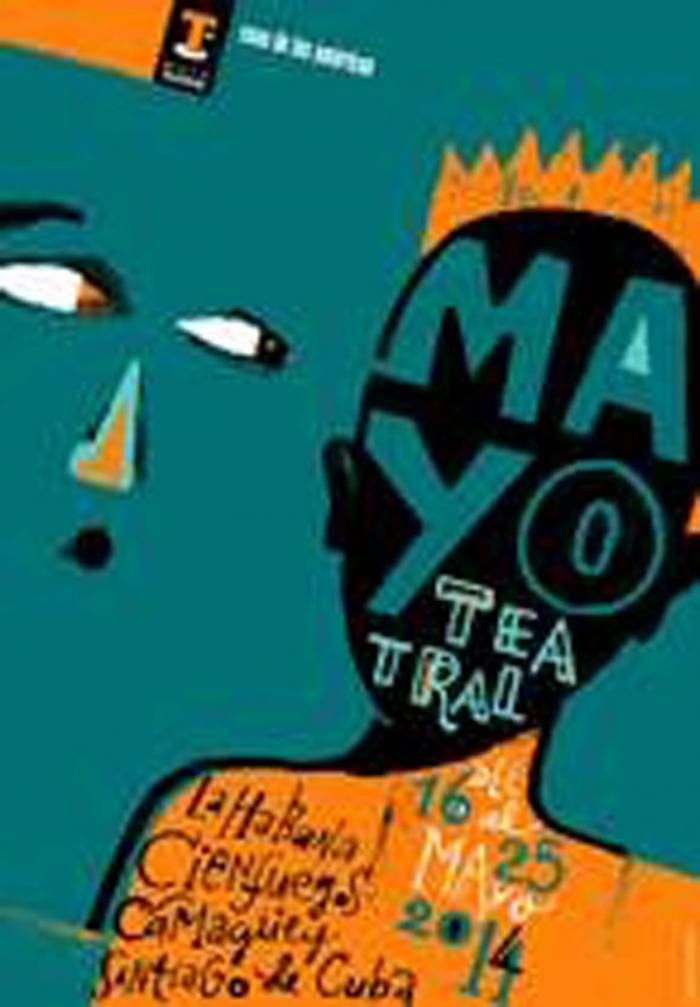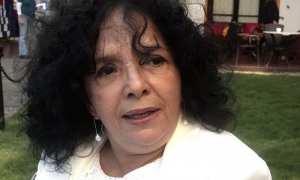
During its 10th edition, the Mayo Teatral festival is focused on how the process of including literature, film and video on stage is developing in Latin American theater, according to Vivian Martínez Tabares, director of Casa de las Américas theater department and the institution’s theater, which is celebrating its 50th anniversary. Martínez, also a respected critic, explained what spectators will notice in the proposed program, featuring seven international, and five Cuban companies presenting works which all share this common element. The Mayo Teatral festival will delight audiences May 16-25 in Havana, along with performances in Cienfuegos, Camaguey and Santiago de Cuba. The jury is very demanding, she continued, adding that decisions must also based on what is within reach, and can be economically presented. During a press conference, Martínez briefly described the 12 companies participating and the works presented this year, May 16-25, in six Havana theaters, as well as venues in Cienfuegos, Camaguey and Santiago de Cuba. Among the participants, four groups have performed during the festival previously, including the emblematic Malayerba from Ecuador, presenting its most recent staging of Instrucciones para abrazar el aire, written and directed by Arístides Vargas, which Martínez Tabares said “metaphorically recreates” the systematic expropriation of children during the Argentine dictatorship. Two companies from Bolivia, Teatro de los Andes and Kiknteatr, will present several versions of Shakespeare, a la boliviana, the first Hamlet de los Andes, “with attractive light work and imagery,” plus Romeo y Julieta de Aramburo, entitled to reflect the hand of Diego Aramburu, who created the adaptation, setting the story within the context of his country’s reality. Brazil is also represented with two companies participating, Boa Compahia, with Primus, an adaptation of Frank Kafka’s Report to an Academy by Verónica Fabrini and Isabela Tardin who “translate literature into physical, acrobatic theater, with an attractive rhythm,” and the Colectivo Teatro da Margen, presenting two monologues by the actor Narciso Telles, Memorial de silencios y margaritas, based on texts by the Uruguayan essayist Eduardo Galeano about those tortured and their torturers during the Brazilian dictatorship, and Potestad, based on one of the most important works of Argentine Eduardo Pavlovsky, who returns to the trauma of stolen children. A Mexican company, Teatro de Ciertos Habitantes, Marínez reported, “is bringing us a classic from their repertory which relates to silent movies,” El automóvil gris. Also invited was the Dominican National Contemporary Dance Company, directed by Marianela Boán, presenting the choreography Sed, “a performance which mixes dance, theater, song, and video with work around an object – a bottle of water – set to live music.” The five Cuban companies invited are presenting works which reflect interactions with literature. The Ciervo encantado group returns with Un elefante ocupa mucho espacio, inspired by a story from Argentine author Laura Devetach, who won the 1975 Casa de las Américas prize for children’s literature. Estudio Teatral from Santa Clara presents Hojas de papel volando, based on Colombian Patricia Ariza’s poetry. Teatro de la Luna, offers Matrimonio blanco, with a script from Poland’s Tadeusz Rozewicz. The Teatro de la Estaciones puppet company returns with Alicia en busca del conejo blanco, based on two of Lewis Carroll’s works, and Teatro El Público with the prize-winning work by Rogelio Orizondo, Antigonón, un contingente épico, based on the Greek myth. In addition to what can be seen on stage, the festival includes encounters among Latin American and Caribbean dramaturges, workshops, analyses of works, exhibits and the 50th anniversary celebration of Guatemalan Manuel Galich’s magazine Revista Conjunto. Ten years of Mayo Teatral festivals, providing a place for dialogue between artistic expressions, and among Latin American and Caribbean artists themselves, with audience participation.






